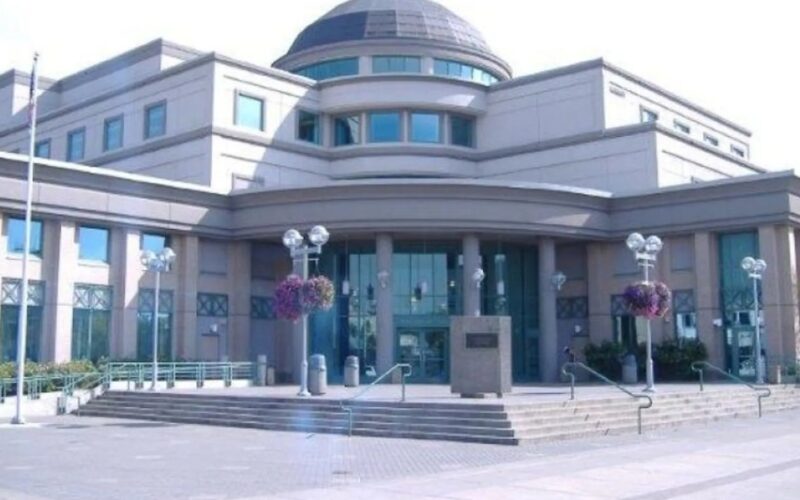Prince George, B.C. (Richa Walia)— The City of Prince George has secured a court order to close the Moccasin Flats homeless encampment, also known as the Lower Patricia Boulevard site, after a B.C. Supreme Court ruling found the camp violated city bylaws.
In his written decision, Justice Bruce Elwood ruled that the camp’s continuous occupation of city-owned land was a “clear breach” of the Parks and Open Space Bylaw and the Zoning Bylaw, which prohibit camping and sheltering on municipal property. The ruling followed a three-day hearing held in early July.
While the order gives the city authority to bar full-time sheltering at the site, Elwood stopped short of granting the city everything it sought. He determined that the injunction must include a provision allowing individuals to apply to the court for constitutional exemptions under “exceptional circumstances.”
Elwood explained that such exemptions could apply in cases where a serious mental illness prevents an occupant from living indoors in a communal shelter setting. He noted that the boundaries of judicial review would need to be defined if and when such applications arise.
Lawyers representing camp residents — including Belvery Edward Johnny (also known as Bel Johnny), Jessica Alec, Tom Beaudette, Jesse Boake, Quinton Campbell, Constant Lavoie, and Johnnie Macburnie — had argued that adequate housing was not available and that residents should be allowed to remain at the site.
The decision hinged on the size of the camp population and the availability of alternative housing. While BC Housing’s most recent count estimated 11 occupants, affidavits from residents placed the number closer to 18.
BC Housing opened the nearby Third Avenue Site in January, offering 42 private rooms with meals, laundry facilities, mental health services, and overdose prevention supplies. However, Elwood noted that only three rooms were available for immediate occupancy as of June 25, with five others potentially opening at an unspecified date.
“The terms of the injunction cannot be absolute,” Elwood wrote, stressing that those unable to secure suitable housing at the Third Avenue Site must have a pathway to seek exemption.
The ruling marks the city’s third attempt to regain control of the land after failing in court in 2021 and 2022.
B.C. Supreme Court Grants Prince George Order to Shut Down Moccasin Flats Homeless Camp, Allows Limited Exemptions

